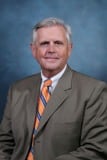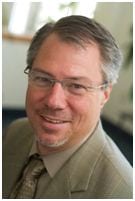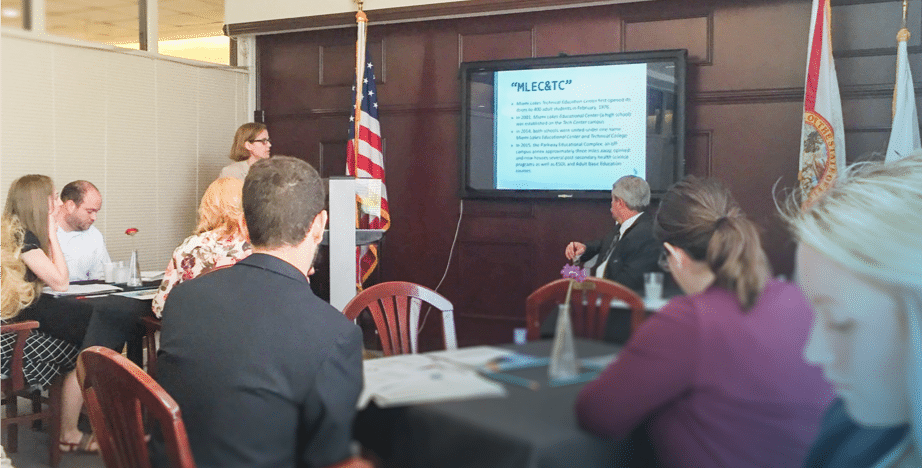Overview
Preparing for college and careers requires far more than rigorous academic content. College and career exploration and planning activities can play a beneficial role in personalizing learning, engaging students, and preparing them for life beyond school. AYPF partnered with the Institute for Educational Leadership’s Center for Workforce Development to present the findings of the Center’s research on the use of Individualized Learning Plans (ILP), which provide middle school and high school students with a tool to define their personal interests, goals, and course choices through postsecondary education and careers. Many states have adopted policies that require the use of ILPs and research is starting to show the benefits.
The Center for Workforce Development has conducted longitudinal research, funded by the U.S. Department of Labor’s Office of Disability Employment Policy, to assess the effectiveness of ILPs, and it implemented a demonstration project to better understand their impact on post-school outcomes. Presenters summarized the research findings and discuss practitioners’ and policymakers’ experiences implementing and scaling up the use of ILPs. Presenters included Dr. Terry Holliday, Kentucky Commissioner of Education, Joan Wills, Senior Policy Fellow, Center for Workforce Development, Institute for Educational Leadership, and Dr. Scott Solberg, Associate Dean of Research, Boston University.
Presenter Biographies
 Terry Holliday, Ph.D., was selected as Kentucky’s fifth commissioner of education in July 2009. Holliday served as superintendent of the more than 20,000-student Iredell-Statesville school district from 2002 until 2009. Under his leadership, the Iredell-Statesville school district received the 2008 Malcolm Baldrige National Quality Award.
Terry Holliday, Ph.D., was selected as Kentucky’s fifth commissioner of education in July 2009. Holliday served as superintendent of the more than 20,000-student Iredell-Statesville school district from 2002 until 2009. Under his leadership, the Iredell-Statesville school district received the 2008 Malcolm Baldrige National Quality Award.
In December 2010, Holliday was named to the board of directors for the Council of Chief State School Officers (CCSSO), and is currently serving as president of the board for 2013-14.
In September 2011, Holliday was appointed to serve a four-year term on the National Assessment Governing Board. The board sets policy for the National Assessment of Educational Progress (NAEP), known as the Nation’s Report Card.
Holliday is the co-author of Running All the Red Lights: A Journey of System-Wide Educational Reform.
He earned a bachelor’s degree from Furman University; a master’s degree and education specialist degree from Winthrop University; and a doctorate from the University of South Carolina.
 V. Scott Solberg, PhD is Associate Dean for Research at Boston University’s School of Education and Professor in the Department of Counseling and Human Development. Dr. Solberg is an active member in the Society for Vocational Psychology, a Section in Division 17 (Society for Counseling Psychology) of the American Psychological Association. He is also a member of International Association for Educational and Vocational Guidance, National Career Development Association and currently serves on the editorial boards of the Career Development Quarterly and the Journal of Latina/o Psychology. Publications related to this work can be solicited directly from Dr. Solberg at ssolberg@bu.edu. Online resources include webinars that showcase the research base underlying ILPs (http://www.ncwd-youth.info/webinars#webinar-ILP1), an ILP how to guide for schools (http://www.ncwd-youth.info/ilp/how-to-guide), and related resources from the National Collaborative for Workforce and Disability for Youth (http://www.ncwd-youth.info/).
V. Scott Solberg, PhD is Associate Dean for Research at Boston University’s School of Education and Professor in the Department of Counseling and Human Development. Dr. Solberg is an active member in the Society for Vocational Psychology, a Section in Division 17 (Society for Counseling Psychology) of the American Psychological Association. He is also a member of International Association for Educational and Vocational Guidance, National Career Development Association and currently serves on the editorial boards of the Career Development Quarterly and the Journal of Latina/o Psychology. Publications related to this work can be solicited directly from Dr. Solberg at ssolberg@bu.edu. Online resources include webinars that showcase the research base underlying ILPs (http://www.ncwd-youth.info/webinars#webinar-ILP1), an ILP how to guide for schools (http://www.ncwd-youth.info/ilp/how-to-guide), and related resources from the National Collaborative for Workforce and Disability for Youth (http://www.ncwd-youth.info/).
 Joan L. Wills launched IEL’s Center for Workforce Development (CWD) in 1991. CWD concentrates its work on the development and improvement of employment-related learning systems in the United States. It focuses on development of new tools (such as skill and literacy standards); systems improvements (such as transition from school to work, adult literacy programs); and capacity of institutions (such as employer-led organizations to work with education institutions and youth serving agencies). Prior to joining IEL she served as project manager of the Commission on the Skills of the American Workforce that issued the report America’s Choice: High Skills or Low Wages! She was the Director of the Center for Policy Research at the National Governor’s Association for several years and prior to that served as a gubernatorial appointee in two states, Ohio and Illinois, as director of workforce development agencies. She has considerable international experience through work done for the Organization for Economic Cooperation and Development and the Inter-American Development Bank all centered on education and workforce development issues.
Joan L. Wills launched IEL’s Center for Workforce Development (CWD) in 1991. CWD concentrates its work on the development and improvement of employment-related learning systems in the United States. It focuses on development of new tools (such as skill and literacy standards); systems improvements (such as transition from school to work, adult literacy programs); and capacity of institutions (such as employer-led organizations to work with education institutions and youth serving agencies). Prior to joining IEL she served as project manager of the Commission on the Skills of the American Workforce that issued the report America’s Choice: High Skills or Low Wages! She was the Director of the Center for Policy Research at the National Governor’s Association for several years and prior to that served as a gubernatorial appointee in two states, Ohio and Illinois, as director of workforce development agencies. She has considerable international experience through work done for the Organization for Economic Cooperation and Development and the Inter-American Development Bank all centered on education and workforce development issues.
Recommended Resources
-
Using Individualized Learning Plans to Produce College and Career Ready High School Graduates – ILP Policy Brief
Click here to view Terry Holliday’s Powerpoint Presentation»
Click here to view V. Scott Solberg’s Powerpoint Presentation»
Click here to view Joan Wills’ Powerpoint Presentation»
NEW Click here to view the full forum brief for this event (PDF)»
Presenter Information
Dr. Terry Holliday
Commissioner of Education
Office of the Commissioner of Education
500 Mero Street, 1st Floor CPT
Frankfort, KY 40601
(502)-564-3141
V. Scott Solberg
Associate Dean of Research
Boston University School of Education
Two Silber Way
Boston, MA 02215
(617)-358-4224
Joan Wills
Senior Policy Fellow
Institute for Educational Leadership
Center for Workforce Development
National Collaborative on Workforce and Disability for Youth
4301 Connecticut Avenue, N.W.
Suite 100
Washington, D.C. 20008-2304
(202)-822-8405 x 103



